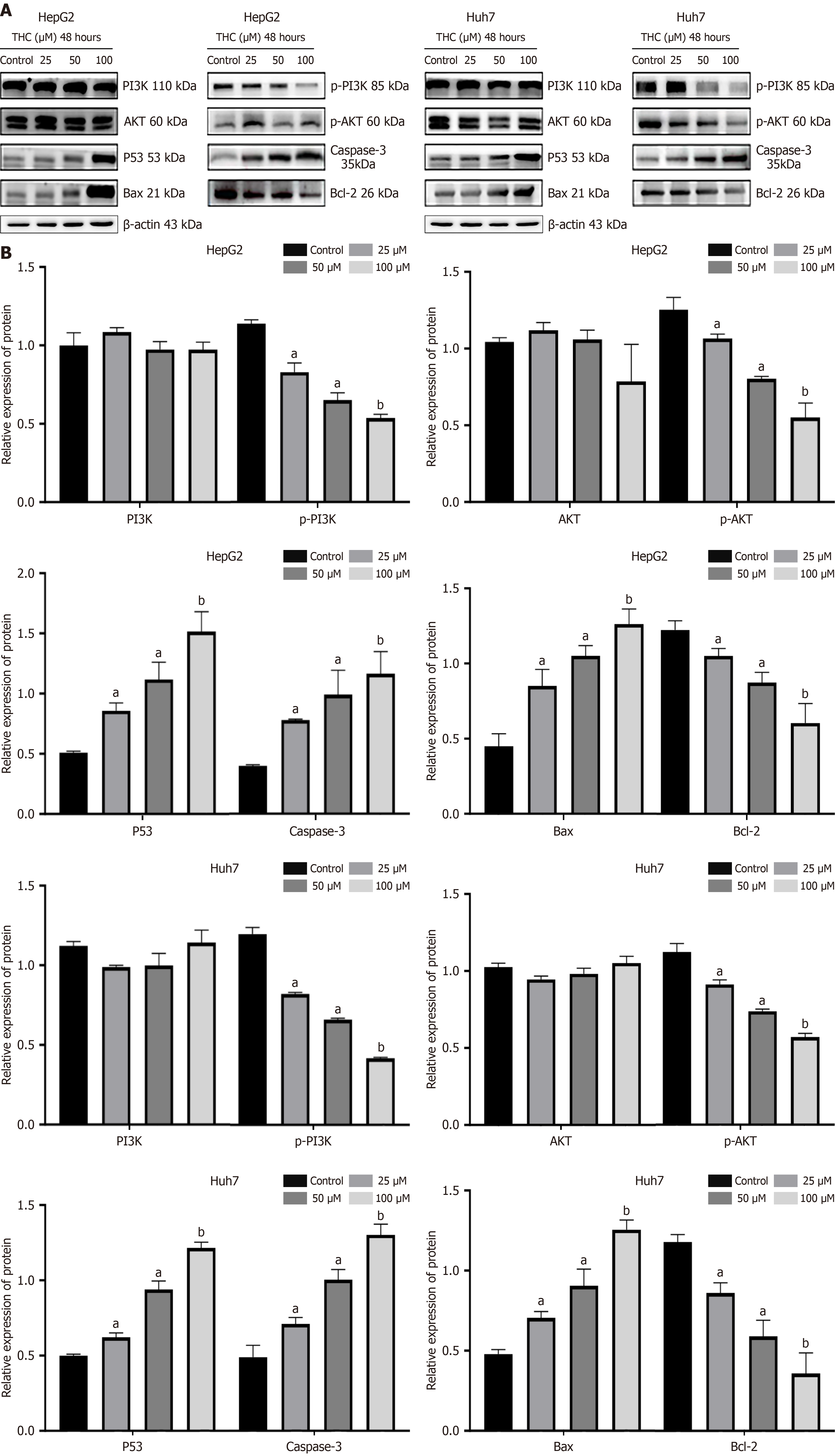Copyright
©The Author(s) 2025.
World J Gastrointest Oncol. Mar 15, 2025; 17(3): 102187
Published online Mar 15, 2025. doi: 10.4251/wjgo.v17.i3.102187
Published online Mar 15, 2025. doi: 10.4251/wjgo.v17.i3.102187
Figure 11 Effects of tetrahydrocurcumin on the expression of phosphoinositide 3-kinases-AKT signaling pathway-related proteins in HepG2 and Huh7 cells.
A: Western blot detection of core proteins related to phosphoinositide 3-kinases (PI3K)/AKT signaling. HepG2 and Huh7 cells were treated with THC (25, 50, and 100 μM) for 48 hours. Representative bands of PI3K, p-PI3K, AKT, p-AKT, p53, caspase-3, B cell leukemia/lymphoma 2 associated X, and B cell leukemia/lymphoma 2 protein expression analyzed by Western blotting; B: Western blot analysis of the expression levels of core PI3K/AKT proteins in HepG2 and Huh7 cells after drug treatment. All data are presented as mean ± SD, n = 3. Compared to the control group, ns indicates no significance, aP < 0.05 vs the control group, bP < 0.01 vs the control group. PI3K: Phosphoinositide 3-kinases; Bax: B cell leukemia/lymphoma 2 associated X; Bcl-2: B cell leukemia/lymphoma 2.
- Citation: Bao ZC, Liu ZD, Zhang Y, Dai HJ, Jia H, Ren F, Li N, Zhao L, Wang YW, Lv SY, Zhang Y. To investigate the effect and mechanism of tetrahydrocurcumin on hepatocellular carcinoma based on phosphoinositide 3-kinases/AKT signaling pathway. World J Gastrointest Oncol 2025; 17(3): 102187
- URL: https://www.wjgnet.com/1948-5204/full/v17/i3/102187.htm
- DOI: https://dx.doi.org/10.4251/wjgo.v17.i3.102187









